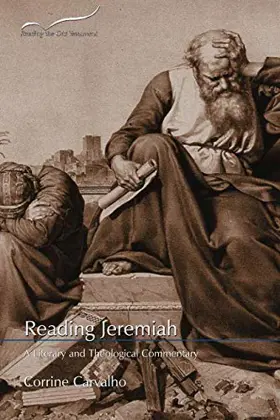

Reading Jeremiah: A Literary and Theological Commentary
Pages
188
Publisher
Smyth & Helwys
Published
5/15/2017
ISBN-13
978-1-57312-924-4
In this new volume from the Reading the Old Testament commentary series, biblical scholar Corrine Carvalho explores the book of Jeremiah—where books are burned in the palace and the temple is a jail. Reflecting the ways that communal tragedy permeates communal identity, the book of Jeremiah as literary text embodies the confusion, disorientation, and search for meaning that all such tragedy elicits. Just as the fall of Jerusalem fractured the Judean community and undercut every foundation on which it built its identity, so too the book itself (or more properly, the scroll) jumbles images, genres, and perspectives.
Carvalho’s study of the book of Jeremiah engages the text as a collection of literature. To be sure, some of this literature has roots in oral performance, but it comes down to us as a written text. It is a complex collection, however, with little inherent cohesion. In fact, it has been preserved in two different arrangements, one found in the Hebrew version and the other in the Greek. Both versions presume that the audience hears this material against a particular historical backdrop. This book fleshes out Jeremiah’s historical horizon, but it does so in order to clarify the literature rather than as an end in itself.
Carvalho’s study of the book of Jeremiah engages the text as a collection of literature. To be sure, some of this literature has roots in oral performance, but it comes down to us as a written text. It is a complex collection, however, with little inherent cohesion. In fact, it has been preserved in two different arrangements, one found in the Hebrew version and the other in the Greek. Both versions presume that the audience hears this material against a particular historical backdrop. This book fleshes out Jeremiah’s historical horizon, but it does so in order to clarify the literature rather than as an end in itself.
Collections
This book appears in the following featured collections.
- Commentaries by Female Scholars by John Dyer